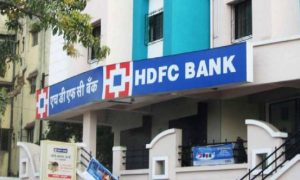The newly introduced TDS on crypto transfers will be implemented from July 1 and the Central Board of Direct Taxes (CBDT) is trying its best to ensure there are no loose ends left. The CBDT released a circular on Tuesday clarifying how the TDS would be levied in the case of peer-to-peer crypto transfers.
In a circular released on Tuesday, the CBDT said that both parties to a transaction involving the exchange of one virtual asset for another will be required to withhold taxes. The CBDT stated that according to section 194S of the I-T Act, the buyer of peer-to-peer transactions involving virtual digital assets must deduct tax (VDA).
Read More: Co-op banks will soon get permission to implement govt schemes using JAM: Amit Shah
“Thus, in a peer-to-peer (i.e. buyer to the seller without going through an Exchange) transaction, the buyer (i.e. the person paying the consideration) is required to deduct tax under section 194S of the Act,” the CBDT said.
Regarding the requirement to deduct tax at source under section 194S of the Act when the consideration is in kind or in exchange for VDA, the CBDT stated that the person responsible for paying the consideration must ensure that the tax required to be deducted has been paid before releasing the consideration.
“So, both need to pay tax with respect to a transfer of VDA and show the evidence to others so that VDAs can then be exchanged. This would then be required to be reported in TDS statement along with challan number by both of them,” the CBDT said.
Read More: Mukesh Ambani steps down, Akash Ambani takes over as Chairman of Reliance Industries
The newly established TDS on crypto transfers will go into effect on July 1, and the Central Board of Direct Taxes has issued recommendations to clarify the matter (CBDT).
According to the most recent tax legislation, anyone acquiring VDA must deduct 1% TDS from the amount paid to the VDA provider. The rules define how the TDS duty applies in various situations, such as when a transaction is conducted on an exchange, through a broker, or in a VDA-to-INR or VDA-to-VDA exchange.





































